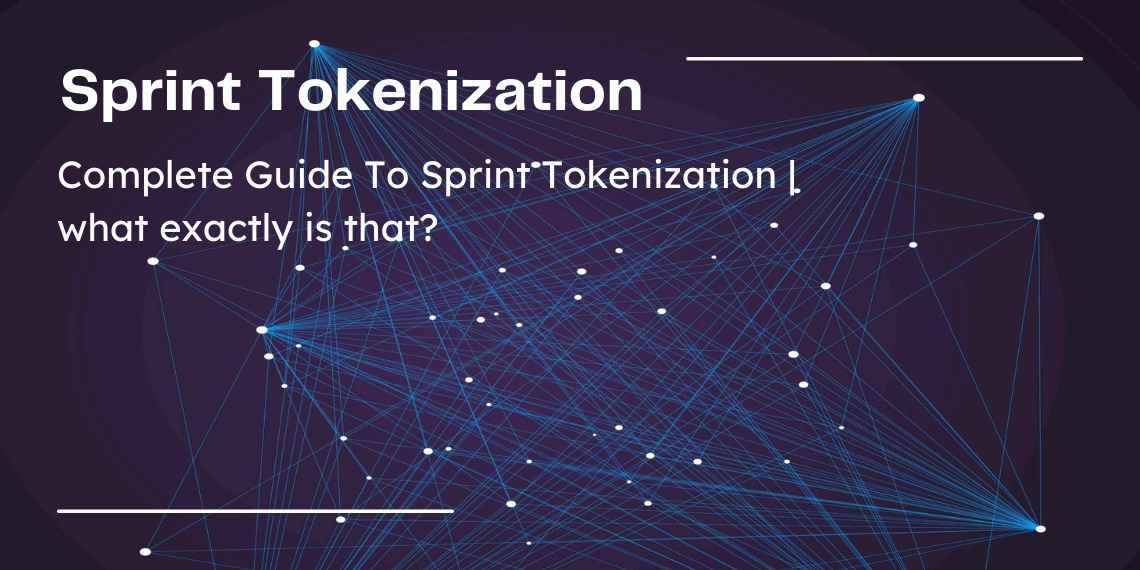
Sprint Tokenization is an important payment security technology that allows merchants to accept credit cards, debit cards and other forms of payment. It’s also known as tokenization or tokenization. Tokenization is a term used to describe the process by which a variety of data types are converted into smaller units called tokens before being transmitted over network connections such as the internet or telephone lines.
Sprint Partners with Global Payments to Add Tokenization to the Sprint Marketplace
Sprint and Global Payments are working together to improve the security of the Sprint Marketplace. This partnership will allow both companies to bring new payment authentication technology to the market, which includes tokenization.
Sprint Tokenization is a new form of payment authentication that protects sensitive data like credit card numbers and CVV codes. Tokenizers can be used with any type of payment method, including credit cards or electronic checks (ACH). It’s important for merchants who want their online transactions approved quickly by banks or other financial institutions if they use tokenized payments instead of physical wallets like plastic cards or paper checks.
What is Tokenization?
Tokenization is a process of replacing sensitive data with a unique identifier. This can be done in several ways, but the most common method is to store it on the blockchain instead of your actual payment card number. If implemented correctly, tokenization can reduce fraud by making it harder for hackers to access your bank account information and make purchases without authorization.
Sprint Tokenizer works by protecting sensitive payment card data from being exposed during transactions through encryption technology that scrambles it into a string of random words before transmitting it over the Internet or any other network connection that may have been compromised by outside hackers (or simply anyone with access).
What are Other Forms of Payment Authentication?
Tokenization, encryption and authentication are three different ways to protect your payment data. Tokenization is a method of encrypting sensitive information so that it can be used only by authorized parties. You can think of tokenization as a kind of digital fingerprint that is created when you send an encrypted message over the internet. The recipient receives this encrypted message, deciphers it and then uses its own secret key (a unique set of numbers) to unlock the code before being able to read what was inside!
Cryptography – general term for techniques used in encryption or decryption processes where one party wants something specific while another party wants something else but neither party knows what they want until they have both agreed upon something else beforehand (i..e., “I will give you my email address if you give me yours”).
Encryption – techniques used for protecting information from unauthorized users; includes hashing algorithms like MD5 which are used specifically with passwords so someone trying steal them wouldn’t be able access them easily!
Why We Use Sprint Tokenization as a Form of Payment Authentication
Sprint Tokenization is the process of substituting sensitive payment data with a non-sensitive equivalent called a token. Tokens can be generated by the card network or merchant, and they are stored on the chip in the card that allows for verification when making purchases.
Tokenization is a way to protect payment data from being accessed by unauthorized parties. It also helps prevent fraud, which means that it’s important for organizations that use Sprint Tokenization as part of their security strategy.
What is the Benefit of Sprint Tokenization?
Sprint Tokenization is a more secure form of payment authentication. It adds an additional layer of protection to your customer’s payment data and can help prevent fraud, chargebacks, data breaches and account takeovers.
How Does Sprint Tokenization Work?
Sprint Tokenization is a process that replaces sensitive cardholder data with a unique, one-time-use token. The token is generated by the Sprint Tokenization service and not the same as your actual payment card number.
This means that when you use your credit or debit card at an online retailer or make an online purchase, you don’t need to share those sensitive details with them they’ll simply see that unique code instead of your real number (your bank will still have access). So what’s so bad about this? Well, first off: if someone gets their hands on these codes/tokens without authorization from you (or doesn’t know how to use them correctly), they can effectively steal all of your money! The second issue is more subtle but no less important: if hackers do get access to these codes/tokens somehow…you’re screwed!
Sprint tokenization is an important payment security technology.
Sprint Tokenization is a method of payment authentication that uses tokens to replace the cardholder’s actual card details. This allows you to keep your customers’ sensitive data secure and protected, while also providing a better user experience for them.
The use of tokens enables companies to implement new ways of accepting and processing payments without exposing their customers’ sensitive information like credit card numbers, expiration dates and other personal details that could be used by hackers or criminals in order to steal money from users’ accounts. This means that if someone steals your Sprint Tokenization key (a unique string), they won’t be able to access any information associated with it because there’s no way they’ll know what these strings look like!
Conclusion
Sprint Tokenization is an important payment security technology. It’s used by companies like PayPal and Visa, as well as major banks. And now, Sprint has joined the trend by adding tokenization to its marketplace.






